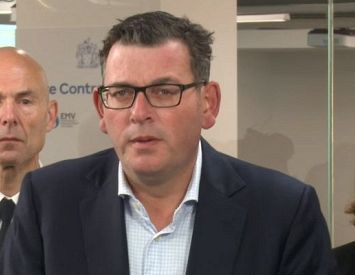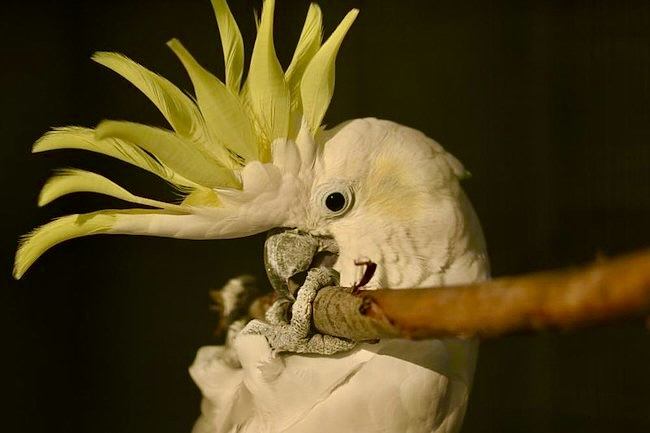While institutional change is desperately needed, we should also be driving social change by questioning what it takes to be considered a “good dad”, writes Emma Willson.
IN 2021, Census data found that women headed 78% of single-parent households in Australia. Children in single-parent families are at risk of higher rates of poverty, with the caring responsibilities of the primary parent inhibiting their ability to work full-time. The gender pay gap and access to affordable early childhood education and care further compound the pressures on single mothers.
Social policy and discussion usually revolve around improving single mothers’ participation in full-time work, while largely ignoring the contributions of the non-custodial parent, which are primarily child support and custody. Why aren’t we talking about the fathers in these situations?
A Parliamentary Joint Committee has just released its findings in a comprehensive report titled ‘Financial Abuse: an insidious form of domestic violence’. The report contains 61 recommendations to improve systemic failures and protect victims of financial abuse. The report notes that the vast majority of victims of domestic violence are women, citing the Australian Bureau of Statistics figure of approximately 2.7 million women.
A key finding of the report was the failure of the current child support system to protect mothers, noting that ‘many women and children trapped in financial abuse are further disadvantaged by perpetrators who weaponise the child support system, leaving them in hardship’. This comes as no surprise to me, a single mother who has experienced the child support system first-hand. The system is in desperate need of reform.
The ABC reported in March that about one-third of non-custodial parents, the vast majority of whom are men, have a child support debt, collectively owing around $1.7 billion. The Parliamentary Inquiry found that the figure is much higher, approximately $5.7 billion.
There are few avenues for recuperating these debts at present. It is very easy for fraud and avoidance to be used as a tool of financial abuse; the non-custodial parent only needs to tell Child Support that their income is lower than it is and then avoid submitting a tax return, or they can tell Child Support that they work for themselves and hide funds elsewhere.
Fathers can miss a significant amount of custody time without it affecting their payment. A request to amend the child support arrangement will result in the agency calling the paying parent, potentially leading to abuse and consequences for the mother.
Advocacy group Single Mother Families Australia has welcomed the findings of the Parliamentary Inquiry and wholeheartedly backs its recommendations, hopeful that they will be implemented. While they will go some way toward protecting women from financial abuse, the report does not recommend a change to the child support assessment rate, nor does it recognise the full economic cost of gender inequality.
In the vast majority of cases, even when child support is paid according to the assessed rate, the amount received is not reflective of the actual cost of raising a child. The assessment formula does not take into account the mother’s reduced earning potential, the increased cost of living, any special needs of the children, or their education and medical expenses, unless these are court-ordered. Seeking orders via the family court is a costly and daunting process, inaccessible to many.
Over time, the current child support system entrenches gender inequality by disadvantaging single mothers, in turn harming their children.
The inequality experienced by single mothers extends far beyond finances. In 2024, despite an increased awareness of gender inequality, most heterosexual relationships still fall prey to outdated gender roles, especially when children are involved. In a typically unequal relationship, the man will take on the role of “breadwinner” whether his partner works or not, while she will assume the vast majority of domestic and child-rearing responsibilities alongside her paid work outside the home. This trend has been consistently reported since the Census began collecting data on housework in 2006.
“Trad-wife” relationships, where supposedly traditional gender roles are taken by choice, are a rare privilege in this economy with most families needing two incomes to survive. Proponents of this movement ignore the fact that mothers have always worked, especially if they were working-class or women of colour. The power imbalance in these relationships also leaves women vulnerable to abuse and control.
The fact is that in most relationships domestic labour is still divided along gendered lines; chores that are seen as masculine and chores that are seen as feminine. He might mow the lawn every second weekend, or take the kids to sports. He might do chores or help with tasks when she specifically asks him to do them, relying on his partner to manage the mental load. Like all caring duties, child-rearing is perceived as being feminine and is therefore undervalued.
These unequal relationships may or may not be abusive, but they are seen as normative. Where domestic violence and abuse enter the equation, the issues are compounded.
When an unequal relationship ends, unless the father shares at least 50/50 custody of the children, mothers still shoulder the vast majority of caring responsibilities. Packing overnight bags, planning birthdays and events, and managing medical issues all typically fall to mothers. This is a continuation of the gendered expectation that mothers will naturally take on the bulk of parenting work, even when they are also participating in paid work themselves.
Any mother will tell you that fathers get a pat on the back for doing the tasks that mothers are expected to do as a matter of course. The double standard is glaring when fathers take on a minimal custody arrangement. They are lauded for seeing their children every other weekend, despite the bulk of the domestic labour still being undertaken by the mother.
A 2019 report from the Australian Institute of Families found that fathers had sole or majority custody in only 7% of cases. There is a stigma toward mothers who do not seek majority care of their children. No such shame exists for men.
When these fathers become single, their capacity for earning income increases as their caring responsibilities diminish. Their increased free time also gives them the freedom to pursue leisure activities, exercise and other hobbies to improve their mental health. They have the time to date and start new relationships. There is no recognition of the fact that they are still buying their lifestyle with the labour of the woman who is raising their children.
It is time for us to recognise this aspect of gender inequality, which has for too long been invisible. There is a stigma associated with being a single mother, which is sexist at its core. Single fathers, on the other hand, get a pat on the back just for showing up. Perhaps we should be questioning what it takes to be considered a “good dad”.
I’m not against the use of shame as a motivator when it’s in the service of equity. A “Deadbeat Dad” is generally defined as a father who doesn’t see his kids, or only sees them rarely, may be abusive and doesn’t pay child support. The term “Disney Dad” describes a father who only does fun things with the children and never deals with the mundane realities of parenting. We need a third term to describe the fathers who only do the bare minimum.
I put the call out to my networks and a woman from New York named Jani Long came up with the term “D-Minus Dads”. This is the dad who does just enough to avoid a failing grade, barely scraping by with a pass. He does only the bare minimum but is mistaken for being a good dad because society’s standards for fathers are so low.
The D-Minus Dad:
- pays the bare minimum of child support and expenses;
- has custody of less than 40%;
- holds sexist gendered views toward domestic labour and child-rearing;
- outsources his parenting duties to other women in his life;
- buys his leisure time and career progression with the labour of his co-parent;
- blames his co-parent, or makes excuses for his lack of custody;
- only parents when it is convenient, or when there is an audience; and
- is often mistaken for a good dad
The D-Minus Dad may or may not also be a Disney Dad and he may or may not also be abusive.
May we celebrate the truly good dads, of which there are many, especially those who are doing it on their own. Men are just as capable of being loving, competent and involved parents, and they should be supported and praised for doing so. Unsupportive co-parents come in all genders and, of course, women can be abusive, too. However, this article is focused on the overwhelming majority and on the deeply entrenched societal inequality that creates the problem. Our children deserve more than just the bare minimum.
Emma Jayne Willson is a writer and poet from Perth.
 This work is licensed under a Creative Commons Attribution-NonCommercial-NoDerivs 3.0 Australia License
This work is licensed under a Creative Commons Attribution-NonCommercial-NoDerivs 3.0 Australia License
Support independent journalism Subscribe to IA.















